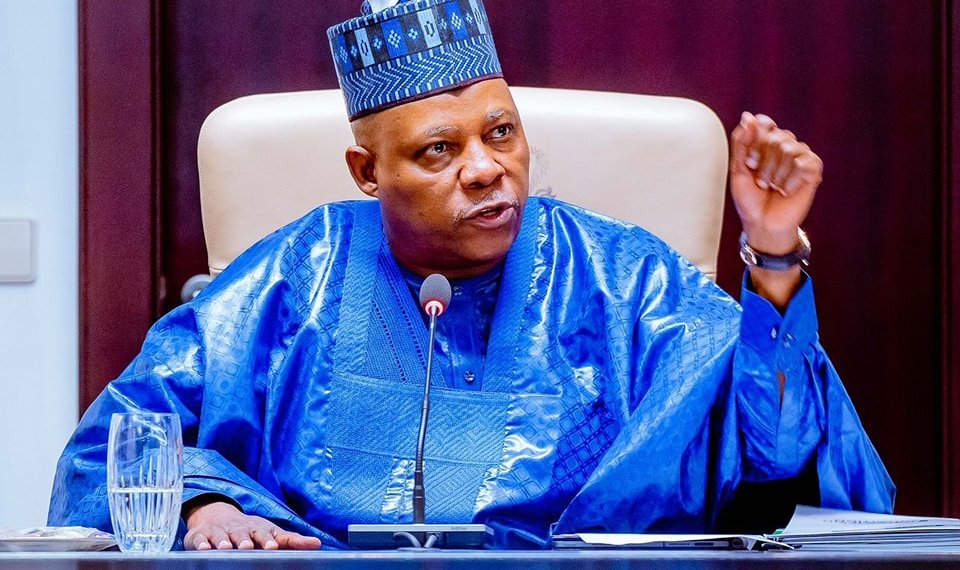
Samuel Omang
The Federal Government has stepped into the growing tension between the Dangote Refinery and the Petroleum and Natural Gas Senior Staff Association of Nigeria (PENGASSAN), declaring that the $20 billion facility is too important to Nigeria’s economic future to be held hostage by labour disputes.
Speaking at the opening of the 2025 Nigerian Economic Summit in Abuja, Vice President Kashim Shettima described the 650,000-barrel-per-day Dangote Refinery as a strategic national asset that must be protected “at all costs.” He warned that the recent strike action by oil workers had the potential to undermine the country’s efforts to achieve energy self-sufficiency, reduce fuel imports, and stabilize the naira.
Shettima, who made an impassioned appeal for unity and patriotism, said: “Aliko Dangote is not just an individual; he represents an institution and an economic vision for Nigeria. How we treat him and his refinery will determine how the world judges us. If he had invested in Silicon Valley, he could be worth billions more, but he chose to invest in Nigeria. We owe it to ourselves and to future generations to protect and promote that decision.”
He continued, “This is not about politics; it’s about patriotism. Nigeria is greater than PENGASSAN, greater than any of us. We cannot allow internal disputes to sabotage a project that can transform our economy. The refinery must work, and it must succeed.”
The Dangote Refinery, which commenced operations in 2023, has been hailed as a game-changer for Nigeria’s oil and gas sector, with the capacity to meet domestic fuel demand and export refined products across Africa. However, a recent standoff between refinery management and the oil workers’ union disrupted operations briefly last week, sparking government concern about the impact on national output and investor confidence.
Minister of Budget and National Planning, Senator Atiku Bagudu, echoed the vice president’s remarks, saying that the refinery represents a vital part of the administration’s industrial development strategy. “This project is not just a private venture—it is a national milestone that can redefine our economic destiny,” Bagudu said. “It must be supported and safeguarded through responsible partnership between labour and management.”
Government officials familiar with the discussions told Vanguard that the Tinubu administration views the refinery as the cornerstone of Nigeria’s economic diversification drive. “This is not just about Dangote; it’s about national pride and energy independence,” one senior official said. “The president is committed to resolving the labour dispute without compromising operations.”
The Vice President’s comments have, however, sparked mixed reactions across the country. Supporters argue that Shettima’s position reflects a pragmatic recognition of the refinery’s strategic importance, while critics accuse the government of downplaying legitimate workers’ concerns. Labour rights advocates insist that patriotism should not override fairness and welfare.
A senior PENGASSAN official, who spoke anonymously, said: “We understand the importance of the Dangote Refinery to Nigeria’s economy, but that cannot justify suppressing workers’ rights. A true partnership means mutual respect.”
Public policy analysts have described the episode as a test of Nigeria’s ability to balance labour relations with industrial growth. Many argue that while the government is right to protect national investments, it must also strengthen mechanisms for dispute resolution to prevent similar crises in the future.
As the refinery gradually resumes full operation, talks between the refinery management, PENGASSAN, and the Ministry of Labour are expected to continue. For now, the government’s message is clear: the Dangote Refinery is not just another private enterprise — it is a national project whose success or failure will echo through Nigeria’s economic story for decades to come.
